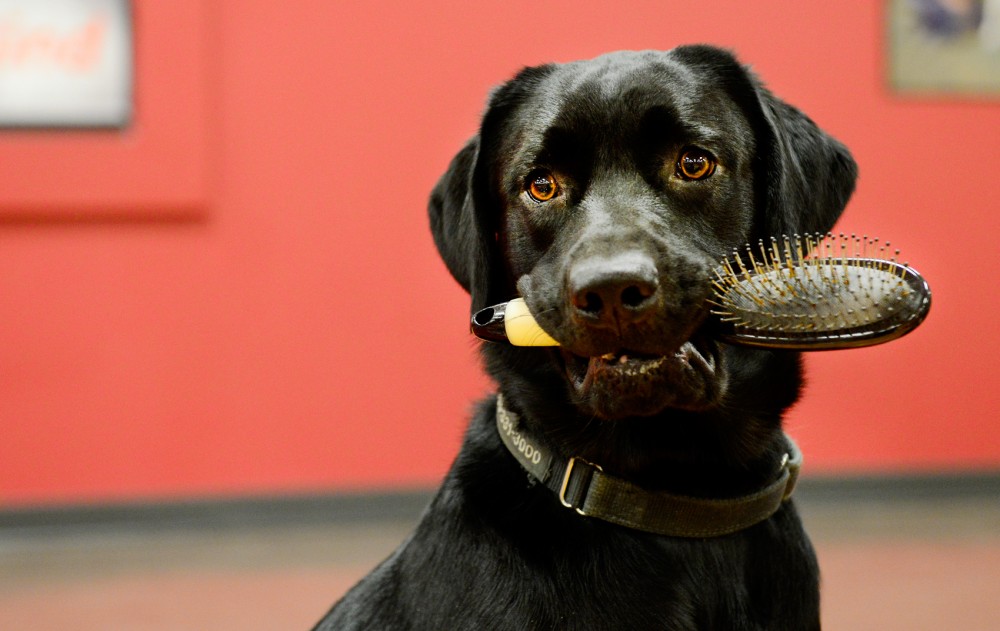Twelve University of Minnesota freshmen will have to help train their roommates to get along with other people and do some household tasks next year.
Next school year, the University is teaming up with Can Do Canine Assistance Dogs to have pre-veterinary students live with service dogs before they’re assigned a permanent owner.
Twelve incoming pre-vet freshman will be admitted into the Living Learning Community, called Fostering Education and Training Canines in Housing, or FETCH, which will be housed in Bailey Hall.
“The students in the program will have to figure out how … they [are going to] work to educate students about the dog and about assistance dog programs,” said Kristie Feist, assistant department director of Housing and Residential Life. “This can really be a field of interest or future career for folks.”
Living in the LLC will require an extra application detailing a student’s experience with animals.
Each of the LLC’s three suites will have a dog to look after, and the dogs will start living with the students beginning mid-fall semester until about spring break.
Feist said that will allow students to learn about their responsibilities and get used to the school before they begin training. Students will bring the dogs to their classes and monthly training sessions in New Hope, Minn.
Veterinary Medical Center Director David Lee helped come up with the idea for the LLC.
“The nice thing about service dogs is that they need a period of a few months for service training, but then they move on to do their job,” Lee said. “You don’t have to worry in the summers about who takes care of the dog or worry about them if they get older and require more care.”
Can Do Canines Director of Training Julianne Larsen said newborn dogs can go into one of two programs.
One of the puppy-raising programs allows volunteers to teach the dogs basic skills, like potty training and obedience. The other, a prison program, assigns an inmate a puppy to take care of and train. On weekends, volunteers in the prison program bring puppies to public places so they can get used to the real world, Larsen said.
Students will start training the dogs after they finish either program, when the dogs are about a year old, Larsen said.
“The idea then is that the dog would be ready and fully socialized and ready to go back into training with their forever handler,” Feist said.
This is the first time Can Do Canines has used pre-vet students as trainers, Larsen said.
The University and service dog program are hoping to have a training center on the St. Paul campus so trainers won’t have to bring their dogs to New Hope for training, Feist said.
Parts of Bailey Hall will be upgraded to accommodate a bathing station, expanded food storage and a fenced, leash-free area for the dogs, she said.
“I think the socialization that they will get going to classes and being on the bus and the light rail is going to be just fabulous for the dogs and in the end really benefits the client who’s going to receive that dog,” Larsen said.


